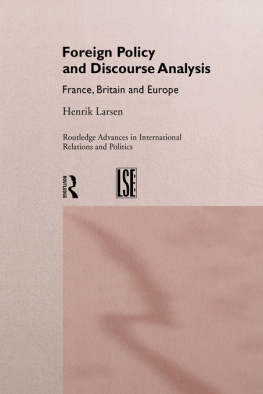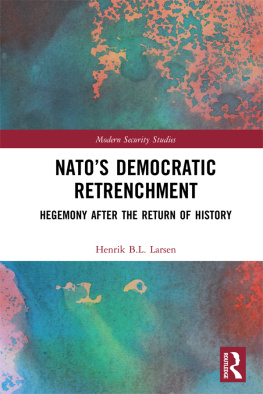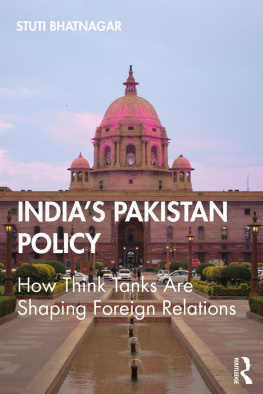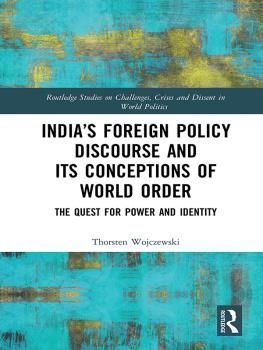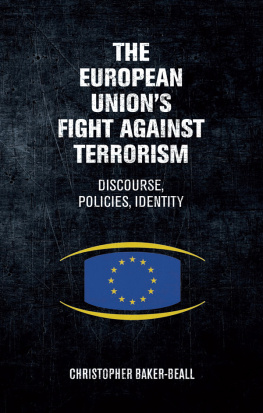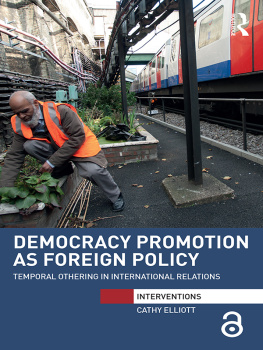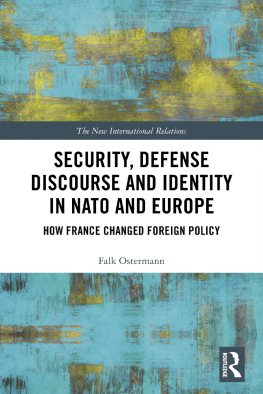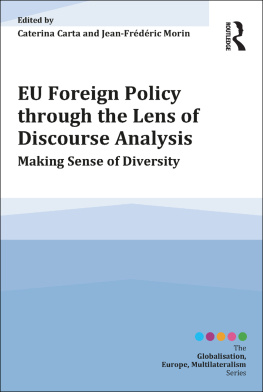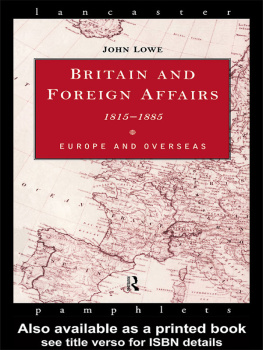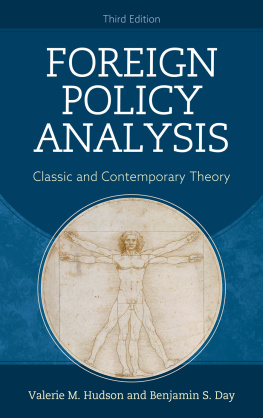Foreign policy and discourse analysis
In this book Henrik Larsen presents discourse analysis as an alternative approach to foreign policy analysis. Through an extensive empirical study of British and French policies towards Europe in the 1980s he demonstrates the importance of political discourse in shaping foreign policy.
The author discusses key theoretical problems within traditional belief system approaches and proposes an alternative one, political discourse analysis. The approach is located within the discipline of foreign policy analysis and consideration is given to the implications of its use for the study of international relations. The theory is illustrated through detailed analyses of British and French discourses on Europe, nation/state security and the nature of international relations.
Henrik Larsen demonstrates the usefulness of the discourse approach as a tool for the understanding of foreign policy. His book will be of great value to undergraduates, postgraduates and lecturers in international relations and European politics.
Henrik Larsen is a lecturer in international relations at the University of Copenhagen. He was previously a diplomat at the Danish Foreign Office, Copenhagen.
Routledge Advances in International Relations and Politics
1 Foreign policy and discourse analysis
France, Britain and Europe
Henrik Larsen
2 Agency, structure and international politics
From ontology to empirical enquiry
Gil Friedman and Harvey Starr
Books published under the joint imprint of LSE/Routledge are works of high academic merit approved by the Publications Committee of the London School of Economics and Political Science. These publications are drawn from the wide range of academic studies in the social sciences for which the LSE has an international reputation.
First published 1997
by Routledge
11 New Fetter Lane, London EC4P 4EE
Simultaneously published in the USA and Canada
by Routledge
29 West 35th Street, New York, NY 10001
1997 Henrik Larsen
Typeset in Times by Routledge
Printed and bound in Great Britain by
T.J. Press International Ltd, Padstow, Cornwall
All rights reserved. No part of this book may be reprinted or reproduced or utilized in any form or by any electronic, mechanical, or other means, now known or hereafter invented, including photocopying and recording, or in any information storage or retrieval system, without permission in writing from the publishers.
British Library Cataloguing in Publication Data
A catalogue record for this book is available from the British Library
Library of Congress Cataloguing in Publication Data
A catalogue record for this book has been requested
ISBN 0-415-15976-8
Contents
British policy towards Europe
Figures
Acknowledgements
This book is based on my Ph.D. thesis which I wrote at the London School of Economics and Political Science from 1989 to 1993. I would like to thank my two supervisors, Christopher Hill and Philip Windsor, for their great help and encouragement during the preparation of the Ph.D. I also owe a great debt to Ole Waever and Ulla Holm for many of the ideas in the book relating to discourse analysis and the French concept of Europe. These ideas have been developed in preparing our joint work The Struggle for Europe: French and German Concepts of State, Nation and European Union (forthcoming). For that book, Ole Wver conceived and wrote the chapter on theory and methodology, and Ulla Holm the basic analysis of French thinking. And I offer thanks to several people with whom I discussed aspects of the research topics: John Barnes, Barry Buzan, Christopher Coker, Philip Moreau Defarges, Spyros Economides, Patrick Grard, Nicole Gnesotto, Pierre Hassner, Bertel Heurlin, Jolyon Howorth, David Knox, Franoise de La Serre, Margot Light, Philip Martel, Patrick Raas, John Roper, Nicholas Sims (my supervisor for the first two years), Alan Sked, Steve Smith, Paul Taylor, Kenneth Waltz and Peter Wilson.
I would like to thank Aurum Press for granting me permission to publish extracts from In Defence of Freedom, Speeches on Britains Relations with the World 1976-1986 by Margaret Thatcher, Aurum Press, London, 1986 and The Revival of Britain, Speeches on Home and European Affairs 1975-88 by Margaret Thatcher, Aurum Press, London, 1989. I would also like to thank Librairie Arthme Fayard for allowing me to reproduce extracts from the book Rflexions sur la politique extrieure de la France. Introduction vingtcinq discours by Franois Mitterrand, copyright Librairie Arthme Fayard, 1986. All translations (in notes) are my own and I bear full responsibility for any errors. I appreciate that Hansard is parliamentary copyright and I have reproduced all extracts verbatim.
I am also grateful to the institutions which funded the Ph.D. research: the Danish Governments Commission on Security and Disarmament (SNU), the Centre for Peace and Conflict Research at the University of Copenhagen, Knud Hjgaards Foundation, the Carlsberg Foundation and the Montague Burton Foundation. My final thanks go to Louise for her invaluable support in the preparation of the book.
Introduction
A general problem in foreign policy analysis is how to deal theoretically with general beliefs to which actors adhere. This is not only a problem in relation to what has often been labelled political ideology but also in relation to beliefs about concepts such as Europe, the state, the nature of international relations, security etc. The traditional foreign policy analysis literature tends to present these kinds of beliefs in an individualist and positivist way without taking into account the impact of language and the societal foundation of the beliefs (see ). This forms the first set of the problems treated in the book. The book proposes a theoretical framework, based on linguistics and the concept of political discourse, which takes these problems into account.
The central thesis of the book is that this discourse framework can help us to analyse differences and similarities in British and French policies towards Europe in the 1980s. The different meanings, signified in different discourses, of four concepts which are assumed to be critical concepts in the policies of the two countries towards Europe in the 1980s will be studied: Europe, the nation/state, security and the nature of international relations. The book argues that the discourse on these four concepts can account for British and French policies towards Europe in the 1980s.
One important aim of this study is to provide an empirical evaluation of one of the reflectivist approaches.
The reasons for examining these four concepts are as follows. The concept of Europe, it can be argued, was a contested concept on the hidden agenda behind the debate about Europeanisation in the 1980s (see, for example, Waever 1989a). The concept of the nation/state is important given that the new state/society debate in international relations indicates the relevance of state/society structures in explaining foreign policy and international relations outcomes (see, for example, Halliday 1989) and therefore the potential importance of the meaning of these concepts for explicating foreign policy. Also the concept of security was a contested concept in the 1980s. The concept of the nature of international relations can be said to be of general value for any analysis of foreign policy. Many other concepts could, arguably, be of relevance (e.g. history or man) but for practical reasons the book is restricted to a focus on the importance of these four.

